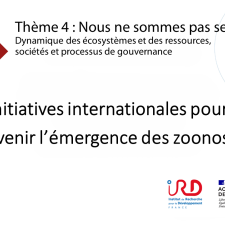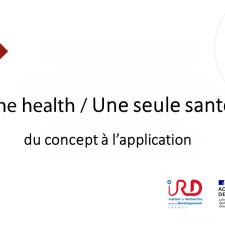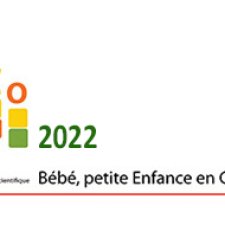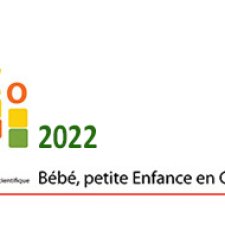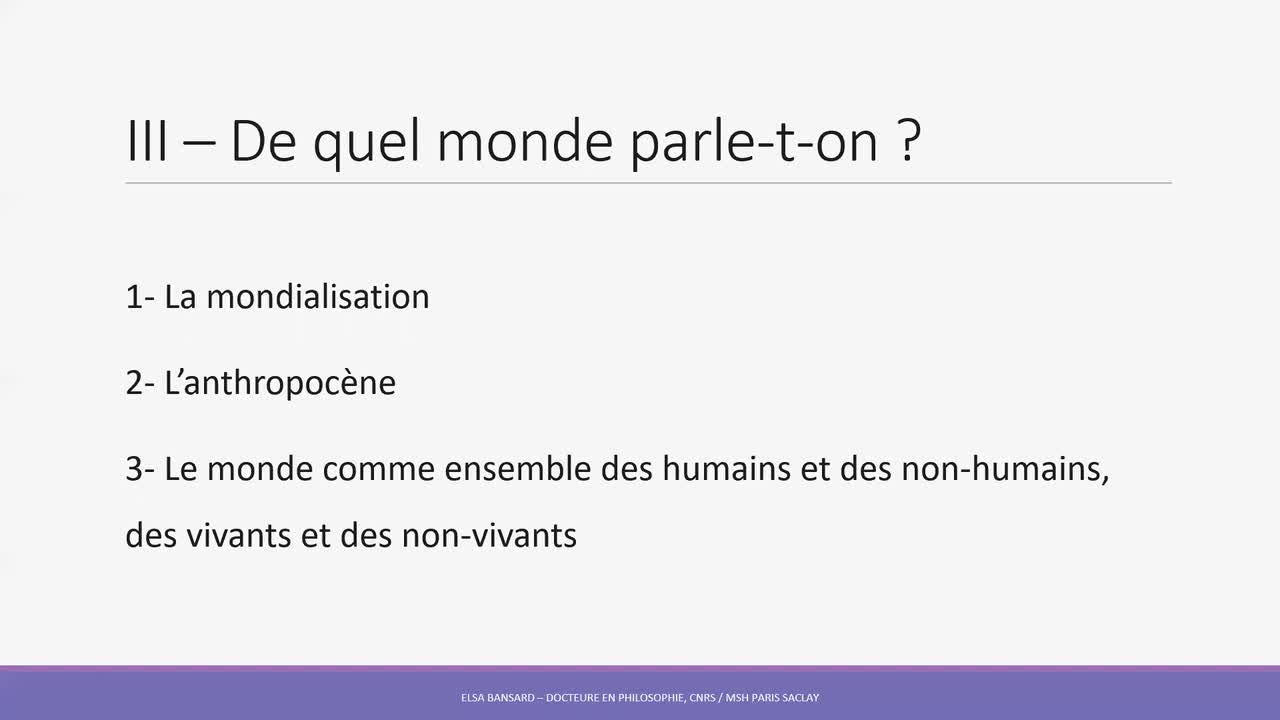Notice
Zoonosis, climate change and new disease in southern countries
- document 1 document 2 document 3
- niveau 1 niveau 2 niveau 3
Descriptif
The nearly equal number of animals, including wildlife, livestock and pets, are notably impacted by climate change. Here we present, complementary to the high relevance of awareness rising for protecting humans against climate change, an integrated consideration of the health of both humans and animals called One Health, and show the advantages of the approach for mitigation of climate change effects on the health of humans and animals concurrently. We postulate that integrated approaches save human and animal lives and reduce costs when compared to public and animal health sectors working separately.
A One Health approach to climate change may significantly contribute to food security with emphasis on animal source foods, extensive livestock systems, particularly ruminant livestock, environmental sanitation, and steps towards regional and global integrated syndromic surveillance and response systems. The cost of outbreaks of emerging vectorborne zoonoses may be much lower if they are detected early in the vector or in livestock rather than later in humans.
Therefore, integrated community based surveillance of zoonoses is apromising avenue to mitigate health effects of climate change. Example: Ebola.
Dans la même collection
-
FAO in One Health; promoting a cross-sectoral multidisciplinary approach to controlling infectious …
Intervenante : April Johnson, FAO, Animal Health Officer Overview of the FAO, it’s mandate and priorities. One Health approach, both within the FAO, with other international partners (the Tripartite
-
Lien entre la santé humaine, la faune et l'écosystème forestier: illustration par les maladies tran…
CossonJean-FrançoisRenéMagalieBoulangerVincentTable ronde - Conséquences des changements globaux affectant le climat, les forêts et la biodiversité, les maladies transmises par les tiques posent des problèmes accrus en santé animale et en santé
-
Le vivant en ville : Roxana Maria Triboi (Université d'Architecture et d'Urbanisme Ion Mincu)
TriboiRoxana MariaIntervenante : Roxana Maria Triboi, Université d'Architecture et d'Urbanisme Ion Mincu (Roumanie) Présentation de recherches autour de l’ouvrage « Le vivant en ville. Nouvelles émergences » articulé
-
Le vivant en ville : Gilbert Gault (VetAgro Sup)
GaultGilbertPrésentation de recherches autour de l’ouvrage « Le vivant en ville. Nouvelles émergences » articulé autour de 4 sujets : gouvernance, intensité urbaine, agriculture en ville, animalité urbaine.
-
Exposome : exploration and contribution to Public Health
BaroukiRobertRappel du concept d’exposome et des différents moyens de l’explorer (différentes échelles, de l’échelle géographique à l’échelle moléculaire). Exemples à partir des 3 grands projets européens sur le
-
Le vivant en ville : Irina Rotaru (École polytechnique de Milan)
RotaruIrinaPrésentation de recherches autour de l’ouvrage « Le vivant en ville. Nouvelles émergences » articulé autour de 4 sujets : gouvernance, intensité urbaine, agriculture en ville, animalité urbaine. Irina
-
Endocrine disruptors and the concept of sentinel species
JégouBernardRappels historiques des différents alertes sur l’existence d'une "perturbation endocrinienne"avec des exemples sur la faune sauvage et sur des espèces domestiques.
-
Agriculture, environnement et alimentation : la santé comme dénominateur commun
DuruMichelAu cours de la deuxième moitié du 20ème siècle, les impacts négatifs de l’agriculture sur l’environnement (contribution au changement climatique, qualité des eaux, déforestation…) n'ont cessé de
-
Sur le même thème
-
Initiatives internationales pour prévenir l’émergence des zoonoses
LounnasManonManon LOUNNAS présente une initiative adoptant une approche « One health (OHLEEP) » : le projet PREZODE pour prévenir l’émergence des zoonoses. Ce projet international multi-acteurs se concentre sur
-
Une seule santé, une approche intégrée pour lutter contre les nouvelles menaces sanitaires
RocheBenjaminBenjamin ROCHE présente d’abord les 4 phases du cycle habituel des pandémies, puis l’évolution des maladies humaines au cours du 20ème siècle, avec l’émergence de maladies infectieuses zoonotiques.
-
Réduire les inégalités sociales de santé dès la période des 1000 premiers jours. S’appuyer sur les …
CardosoThierryPour proposer des clés de compréhension et d’action sur la période des 1000 premiers jours aux futurs parents et parents d’enfants de moins de 2 ans, Santé Publique France a créé un site internet. L
-
Intervenir pour l’équité en santé dès la petite enfance grâce à des ingrédients clés / Julie Poissa…
PoissantJulieAvant même la naissance, les enfants n’ont pas les mêmes possibilités d’atteindre un état de santé et de développement optimal. Par ailleurs, c’est durant la petite enfance que s’établissent les
-
Elsa Bansard - « Covid-19 et crise écologique : quels enjeux épistémiques et éthiques pour une écol…
BansardElsaZoonose, effets climatiques des confinements puis de la reprise économique, propagation accrue du virus dans les zones les plus polluées… les liens entre santé et écologie se construisent et nous
-
One Health, olhares cruzados da geografia e da ciência de dados
Café scientifique sur la stratégie One Health au Brésil IRD/LMI Sentinela Réalisation Héloïse Benoit Copyright IRD 2021
-
de nouveaux indicateurs de richesse au service de la résilience de la société
L’IEA de Paris, l’EIVP et la Ville de Paris ont initié en octobre 2019 le cycle « Résilience et Innovation Territoriale », avec des évènements réguliers sur ce thème multidimensionnel. Les 15, 16 et
-
Inégalités de santé et Covid-19 : la situation des données en France
Kelly-IrvingMichelleLors de la semaine Data-SHS (organisée annuellement par le réseau des plateformes universitaires de données avec le soutien du TGIR PROGEDO), la PUD-T et l'IFERISS proposait le 08 décembre 2020 une
-
Des dispositifs de formation hybrides pour faciliter la conciliation d'études supérieures avec une …
BonniJérémyLa présente recherche s'inscrit dans la continuité d'une première étude menée par Bonni, Cloes et Theunissen (2018) dont les résultats ont mis en évidence l'intérêt de poursuivre des études
- Éducation
- Promotion de la santé
- Informatique appliquée aux méthodes d'enseignement (enseignement assisté par ordinateur, utilisation pédagogique des ordinateurs, TICE, applications informatiques pédagogiques)
- Formation, recherche et sujets connexes relatifs à l'éducation (enseignement et étude de la pédagogie)
- Enseignement supérieur
-
Centenaire de la Société de pathologie exotique : 20-21 juin 2008 Institut Pasteur Paris
1908-2008 : centenaire de la Société de pathologie exotique
-
Basta de gusanos !
PaysJean-FrançoisBasta de Gusanos ! est un film de 20 minutes, conçu, écrit et réalisé par Jean-François Pays, à la demande du Pr C.E. Borda, directeur du Centre National de Parasitologie et des Maladies Tropicales de
-
"L'enseignement de la médecine tropicale en France en 2013" Table ronde de la Société de pathologi…
Fondée en 1908 par Louis-Alphonse Laveran (prix Nobel de médecine 1907), la Société de pathologie exotique (SPE) a pour but : l'étude des maladies exotiques de l'homme et des animaux ; l'étude











